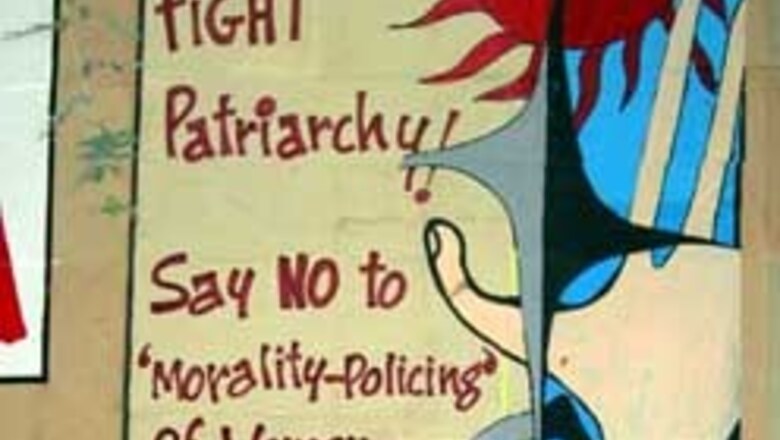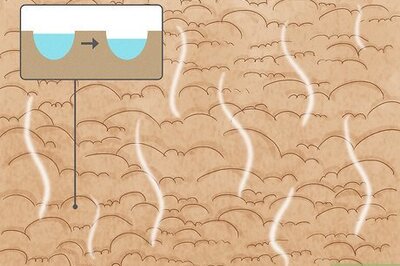
views
New Delhi: You don’t need to be a trained artist to paint the town red, or for that matter, any other colour – you just need to be original.
And if you stay in Delhi, getting original with colours isn’t difficult.
The city offers ample creative outlets for the artist within to manifest himself. Graffiti is one such option.
Be it schoolkids or colleges students painting to spread a message, or street children painting for money, this new form of expression – also made popular by recent Bollywood hit Rang De Basanti - looks like it’s here to stay.
Colleges affiliated to Delhi University even conduct annual graffiti fests, which are quite popular among the students.
However, since spray paints on walls aren't allowed in DU, students stick to markers and sketch pens on paper.
Says Vani Khurana, a final year student of B Com (Hons), Gargi College, "We have white boards on which students draw and write with colourful pens. It's a creative way of expressing thoughts and creating awareness on various current issues."
The Jawaharlal Nehru University – considered the academic intellectual hub – is bolder and allows the use of paint on big posters that are pasted across the campus walls.
At the JNU, graffiti is less of an idle pastime and more about making a political statement.
PAGE_BREAK
The issues raised could be anything from anti-Bush, anti-Iran campaigns to reservation for OBCs.
Gender issues and minority rights are also discussed through graffiti.
Vartika Rawat, counselor at the School of International Studies thinks that art, music and dance are more enjoyable forms of expression as compared to seminars and discussions preaching ideologies.
"Youth today are more happy go lucky and they don't like listening to long lectures. Also these mediums are more effective in spreading the message."
Ravi Singh Baghel, a student of MA in Chinese literature is, however, not too happy with the way graffiti is done the city.
"In some ways, graffitis are a very nice form of expression but they damage the walls. There should be specific reserved places for the purpose. In countries like Germany, there are areas reserved for the purpose, which also leads to beautification of the place. Also the problem with graffiti here is that they are too politically motivated."
Walls and posters aren't the only canvases.
Shoubhik Das, a second year student of M Phil, likes to paint his views on T-shirts. "I don't paint walls. I have painted a lot of T-shirts and I also use the medium to communicate what courses and programmes are being offered by my department."
Spray painting on walls, however, is very rare due to administrative and financial constraints. "Spray paints are expensive.
Besides, a fine may be imposed on us if the authorities in the campus find out that we have painted one of their walls," says Shoubhik.
And it's not only campus youth who are interested in playing with colours. The passion for free art extends to children as well.
Earlier this year, Nirula's food joint in Defence Colony got its wall painted by street children of less than 10 years of age.
Says Sandeep Kumar Madan, GM, Marketing, Nirula's, "Our Defence Colony branch is the largest and is visited by a lot people, including kids. So, we got a wall painted here by children of Salaam Baalak Trust. The painting has been so beautifully executed that there's no way anybody can ignore it."
The Delhi's art fraternity, sure seem to be encouraging of the practice. Artist Illoosh Ahluwalia feels that graffiti expresses the pulse of students. "One can easily see the mood and the need of the artist who's written or painted a graffiti," she says.
Artist Sanjay Bhattacharya feels that this form of art is very striking but "should be practiced only if some strong issues have to be expressed. Graffiti are visually powerful and no technical skills are required. The only minus point is that they may damage the walls. But if the issue expressed is strong, nobody objects."

















Comments
0 comment